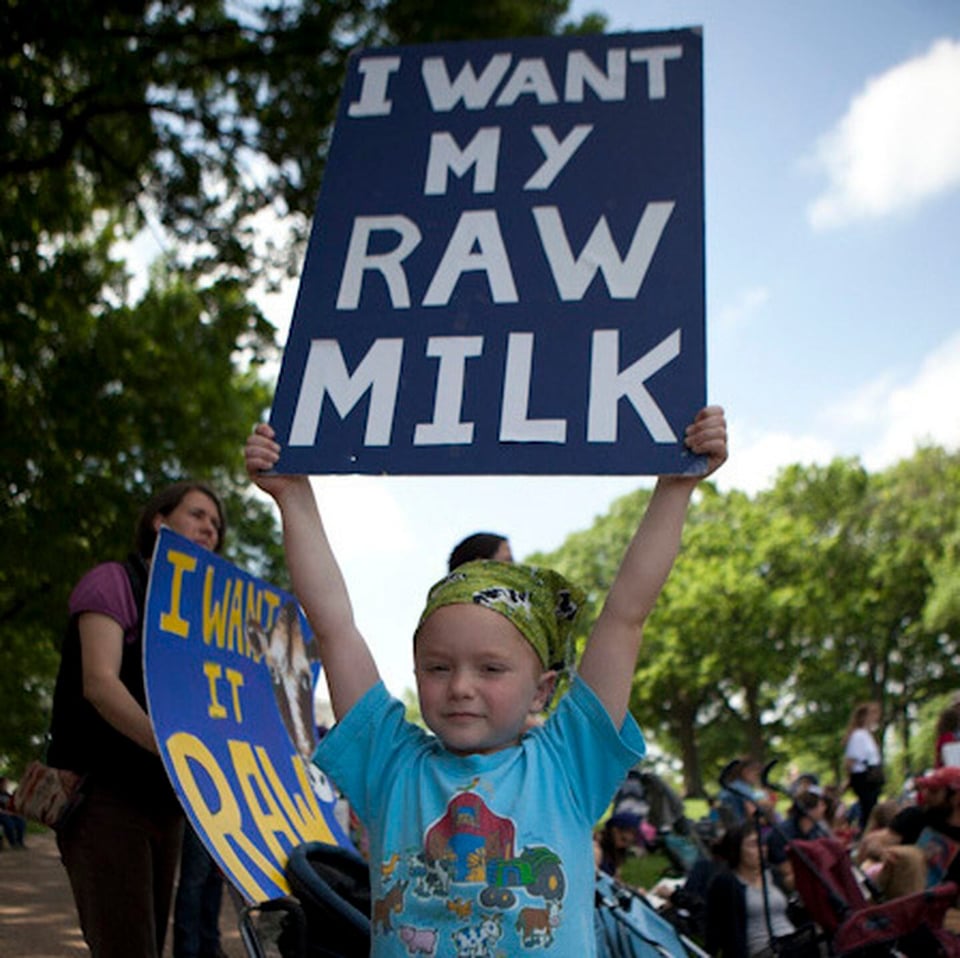The stupid are a self solving problem.
Nope. Anti-vaxxers.
Stupid adults harm their kids.
These people probably overlap quite heavily with the anti-vax people; it is their kids and all other people around them that are harmed.
But before they’re solved they’ll create even more chaos and bullshit.
Darwin, and the associated awards are certain evidence in agreement
I want my cream pasteurized, but I wish I had the option to buy pasteurized, instead of ultra pasteurized. I really value not getting sick, but the process that ultra pasteurized cream goes through makes it impossible to make clotted cream.
Oh boy, every time we visit the states I forget that the milk has that funky ultra pasteurised taste to it.
Having just normal pasteurised would be great.
Less sugar in your bread please too, thats also fairly grim.
I have to buy “specialty” breads from bakeries because grocery store bread so frequently has the worst, softest, blandest texture.
As for putting sugar in everything, the thing I hate most is lemonade. Citrus without tartness is sugar water! I despise it!
Yeah, either French Sticks or Sour Dough are generally safer options.
Yeah ultra pressurized milk makes shit foam for a cappuccino. The extra heat breaks down large sugars.
This, too! They’ve stolen the quality of cream from me. But I can’t just go buy regular pasteurized anymore! And I don’t want raw milk!
I just gave up on cream to be honest.
Lol that lady’s sign says “she wants it raw” yes Mrs old dirty bastard.
Shimmy shimmy ya Shimmy yam shimmy yay Give her the milk So she can take it away
It’s so not worth the trouble of, you know… dying and all.
OK here’s my Anarchist “Hot take”. It’s not correct, but I’m building an oversimplified model to make what’s happening somewhat visible. Let’s divide people up into two groups: One group has “experts”, who are pretty alone / introverted, but doesn’t really do the work of meeting up with others. The other group has people who know how to gather a party together, through a bbq or cookout or family meals or an actual party, but aren’t too bright.
In the past, both groups were kind of homogenised together, to the extent that neither group really knew the existence of the other, but they knew how to make things “work”. Like the experts didn’t know how the cookouts happened, but they just needed to turn up, and enjoy the party. The rest was more or less magic. The other group knew the effort to bring people together, but didn’t realise that some of those people were more valuable than the others. The actual dissemination of expertise was more or less magic.
Today, we have social media. The cookouts happen in social-media spaces, but what’s happened is that the experts and the non-experts have split (sort of like the milk we’re talking about here). The experts can “meet” without the party people, and the party people “meet” with the other party people. In the past, the experts would naturally become the trusted members of society because people would know them over the years being right over and over. Today, however, the experts are effectively in a different world to the party people, who are all vying for a “trusted position”. This is valuable, because the party people are “gullible” – I don’t mean this in a negative sense, just that they must trust the expertise around them, the social proof, or the consensus. Repeating that this used to work because actual experts used to be among them.
So you have people like Alex Jones, who is a snake oil salesman. In the past, a niece or nephew might have been able to tell their family not to listen to Alex Jones, and that would have worked. However, that’s no longer effective because Jones has unadulterated, prime position straight to the party people’s brain sockets through talking for hours at end about this crazy stuff. The nephew is also not at enough of the cookouts to counteract that. This pushes the family apart (we’ve seen this narrative now, people who are so far in the alt-right pipeline they can’t back out) and allows Jones and co to completely wreck these people’s lives.
So in short, I don’t think this is a consensus reality thing. I think it’s a filter bubble thing. We’ve managed to make it easy enough to filter things we don’t want to hear, and to not work with people who don’t agree with us. Oh and don’t think the “experts” are in a better position here. They fundamentally can’t organise a party. They don’t know how.
I don’t drink it any more (having kids changes everything), but holy shit raw milk is delicious.
Unprocessed milk is much healthier and tastier than processed milk… but only if the cows graze on grass. The problem with unprocessed milk isn’t the milk itself; people have been drinking it for thousands of years. The problem with unprocessed milk is risk of contamination. When bottling it, It needs a clean environment, clean cows, attention to the health of the cows, and as a failsafe, pathogen testing. Mass production of milk in the US’s current environment of aged, sick, corn-fed, hormone-dosed cows standing in cages in their own excrement is not conducive to unprocessed milk. It’s so filthy that pasteurisation is a must. Creating and maintaining a clean environment, healthy appropriately fed herd, and testing, for the production of unprocessed milk is not economically viable at mass scale. If you want to produce millions of gallons of milk per annum, you unfortunately need dense cages. You need to keep your expenses low so you feed them cheap corn feed which they’re not designed to eat. This lowers their immunity so that they often get sick, and have mastitis. So you have to load them up with antibiotics. They remain unhappy and unexcercised cows with poor quality milk which often contains a percentage of pus.
Smaller farmers and operations can often invest the time and money to do what’s necessary to produce clean unprocessed milk from healthy cows in a clean environment. In my country we have vending machines on farms for unprocessed milk. And each batch has a testing and pathogen report posted to verify it’s good and healthy.
In the US, the mass milk producers would rather everyone think that unprocessed milk is inherently dangerous, rather than a solveable issue surrounding process and scale.
Smaller farmers and operations can often invest the time and money to do what’s necessary to produce clean unprocessed milk from healthy cows in a clean environment.
Or you can do what a lot of small farmers do: go slowly broke over the course of decades while the government provides for the megacorps and the nature of the economy changes such that all of their kids can’t wait to get the hell away from the old family farm as fast as possible.
You’d think that, if nothing else, we’d have a shared cultural interest in preserving that way of life. Hell, put traditional agriculture under the purview of the National Endowment for the Arts, even.
I think in the future we’ll wean ourselves off milk like proverbial calves, and transition to ethical and environmentally friendly alternatives like oat. Don’t need to worry about exceeding acceptable faeces and pus limits with oat milk.
Smaller farmers and operations can often invest the time and money to do what’s necessary to produce clean unprocessed milk from healthy cows in a clean environment.
At least in my case, the local small farm I was buying my raw milk from ended up having extremely unsanitary conditions inside. They would open an entire vat of milk inside the barn where the cows were kept (and where flies were buzzing around) to ladle out the milk into a jar. It suddenly made sense why a family member had e-coli poisoning not long before.
I stopped buying raw milk after that, though I can see how, if done in a sanitary way, it wouldn’t be quite as dangerous as my local farm ended up being, but I think state inspectors might’ve had the work cut out for them, or maybe it wasn’t strict enough?








